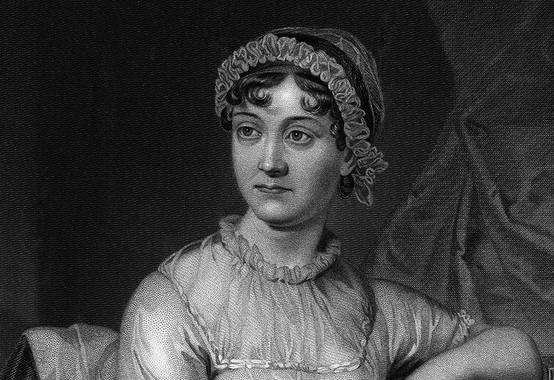Why Is Jane Austen So Popular?

After Shakespeare, Jane Austen is the most widely recognized literary figure today, and in the past thirty years, there has been a seemingly endless stream of TV adaptations, films, books, and events devoted to the English novelist.
The 200th anniversary of Pride and Prejudice was marked last year by the publication of dozens of books, including the much discussed Jane Austen, Game Theorist and Jane Austen’s England, a couple of highly publicized rewritings of her fiction, and even a book of Jane Austen inspired quilts. A huge statue of Colin Firth as Mr. Darcy was erected in the middle of an English lake in tribute of the BBC’s adaptation of Pride and Prejudice, and there were Jane Austen gatherings and other events across England and America.
It is a little odd, perhaps, that a largely egalitarian culture preoccupied with sex and awash with pornography and novels like Fifty Shades of Grey should be so obsessed with feisty but highly moral young women who fall wholesomely in love with handsome, if occasionally rude or naïve gentlemen. Why is she so popular?
One reason, of course, is that Austen is a great writer. She is a gifted stylist—concise, witty, ironic—and a master of the miniature. A realist, she is also ironic, funny, and wise. Her novels were not popular in her (short) lifetime. But she had a devoted following among contemporary and later writers, such as Sir Walter Scott, William Dean Howells, and Katherine Mansfield, and was comparatively popular by the end of the 19th century. Appreciation (or at least awareness) for Austen’s skill has also grown as she began to be studied in college courses with more regularity.
But Austen’s popularity can’t be chalked up to style alone. There are other writers who are just as gifted as Austen but nowhere near as popular. Though I am undoubtedly in the minority, I find Austen’s preoccupation with portraiture occasionally tiresome—the constant sifting of motives, the immaculate dialogues on manners and morals, and the minor losses and victories of fragile aristocratic families. Her novels can be too long; her plots can drag.
The Wall Street Journal noted Austen’s “universal themes”—“love, money, power and status.” One theme the Journal doesn’t mention is personal happiness. Duty and honor are two of the most common themes in literature, and Austen touches on these in her novels, but her characters are overwhelmingly preoccupied with finding happiness. And so are we.
This is not necessarily a bad thing. Aristotle argues that happiness is the only goal in life and that everything we do is in the service of attaining it. Augustine seconds Aristotle, though he adds the caveat that true happiness can only be found in loving God. Our love for other human beings is (or should be) an extension of our love of God, a point with which Austen may have agreed.
And, of course, another reason for her popularity is nostalgia—nostalgia for the chivalry and dignity of a previous age, imagined or real—a point which has also been largely ignored in last year’s commentary.
In Reflections on the Revolution in France, Burke argued that the age of reason would mark the end of the age of chivalry, ushering in a world organized not by tradition but by fear and power. He may have been right in theory, but, as our culture’s obsession with Jane Austen (or “Downton Abbey,” for that matter) suggests, tradition—especially regarding gender roles—may not be so easily thrown off.
Comments